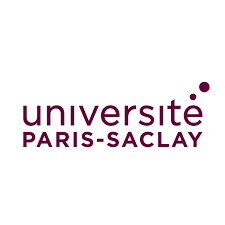-
Complex systems and software engineering
-
Quality of life - Health - Food
I2BC / Département Biologie Cellulaire
Research team
The Department of Cell Biology is part of the Institute for Integrative Cell Biology (I2BC), and is interested in the molecular mechanisms that govern the physiological functions of cells, as well as the impact of the environment on these functions. The department's research groups use models ranging from eukaryotes to plants and mammals to understand the processes of homeostasis of living cells and organisms
Innovation themes
Lab of attachment
Avenue de la Terrasse
Bâtiment 21
91190 GIF-SUR-YVETTE
Expertises
- functions and dysfunctions of the mitochondria
- biogenesis and functioning of mitochondrial OXPHOS complexes in yeasts and mammals
- biogenesis and function of centriolar and ciliary structure
- Cytoskeletal dynamics and membrane trafficking
- Dynamics of cell compartmentalization in superior plant cells
Signaling, Stress and Adaptation:
- cell signaling and ubiquitination in plants
- autophagy and development
- cell signaling and morphogenesis
- growth and metabolism in Drosophila
- Integrative approaches to ion transport
- Oxidative stress and cancerThe Department of Cell Biology is part of the Institute of Integrative Cell Biology (I2BC), and is interested in the molecular mechanisms that govern the physiological functions of cells, as well as the impact of the environment on these functions. The department's research groups use models ranging from eukaryotes to plants and mammals to understand the processes of homeostasis of living cells and organisms
Applications sectors
- Biotechnology
- Other business
Total number of employees
Number of researchers : 54
Equipment(s) open to collaboration
Keywords
- mitochondrial diseases
- drug screens
- mtDNA
- respiratory chain
- proteasome
- saccharomyces cerevisiae
- caenorhabditis elegans
- podospora anserina
- autophagy
- cell cycle
- embryogenesis
- vesicular trafficking
- mitochondria
- yeast genetics
- centrosome
- centriole
- ciliogenesis
- basal body
- cryotomography
- tumor
- morphogenesis
- cell compartment
- endomembranes
- endoplasmic reticulum
- Golgi apparatus
- vacuole
- autophagosome
- cell imaging
- plant biology
- regulation
- apoptosis
- metabolism
- fatty acid
- cell growth
- nutrients
- insulin
- redox
- oxidative stress
- iron metabolism
- lipids
- electron microscopy
Valuation offer
- protocol developments for multiscale imaging
- total internal reflection fluorescence microscopy
- complementary imaging and cytometry modes for plant cell exploration: evanescent wave imaging (VAEM, TIRF), super-resolution imaging (PALM, STORM), photoconvertible proteins for pulse-chase approaches in cellulo, etc.
- genetic approaches and 4D imaging
- Drosophila model
Establishments of affiliation

